INTRODUCTION
The Federal Government of Nigeria has received a Facility from the African Development Bank (AfDB), International Fund for Agricultural Development (IFAD) and the Islamic Development Bank (IsDB) to finance the cost of the Special Agro-Industrial Processing Zones Program (SAPZ), and intends to apply part of the proceeds towards carrying out various consultancy services. The SAPZ Program is being implemented in the seven (7) States, namely, Cross River, Imo, Kaduna, Kano, Kwara, Ogun and Oyo, and the Federal Capital Territory (FCT).
The overall development objective of the SAPZ programme is twofold: (1) Support the development of SAPZ in high food production areas to supply the domestic food market and create exportable surpluses; and (2) Capacitate smallholder farmers, small agro-processors and traders, and community-based service providers, including women and youth; to take advantage of the market demand created by the SAPZ to sustainably enhance their income, household food security and resilience to climate change.
The SAPZ program will follow a two-phased program approach. Under phase I (2022-2028), the Government and AfDB, over a period of 5 years, will set up enabling Sinfrastructure and investment policies in targeted states. IFAD will operate over a period of seven years. This slightly longer period will allow IFAD to empower smallholders to take advantage of the SAPZs when they are fully operational. The program will be expanded into additional states in subsequent phases, based on lessons learned and the availability of funding.
In phase I, the program will support the set-up of SAPZs in the Federal Capital Territory and seven states, namely Kano, Kaduna, Oyo, Kwara, Ogun, Imo, and Cross River. IFAD will focus on Kano and Ogun states, leveraging its ongoing programs.
Phase I will directly benefit 1.5 million households, including private sector agribusinesses and agro-processors, smallholder farmers, agro -entrepreneurs and agro-dealers. IFAD investments, including through the Green Climate Fund (GCF), will target a total of 100,000 direct beneficiaries (and 400,000 indirect beneficiaries, making a total of 500,000). Rural women and youth are the core target groups. Opportunities for participation will be created for internally displaced persons and persons with disabilities.
The program has four components namely:
➢Component 1: Infrastructure Development and Management for Agro-Industrial Hubs (AIHs). Under this ADB-led component, the programme will support the FGN in developing and setting up eight (8) SAPZs in high potential states under phase 1.
➢Component 2: Agricultural Productivity, Production, Market Linkages and Value Addition in SAPZ Catchment Areas. Under this component, SAPZ’s objective is threefold: (i) support smallholder farmers and small operators to increase their productivity/production and capacity to add value to raw materials on a profitable and environmentally sustainable basis; and (ii) link them to the additional market outlets offered by the Agro-Industrial Hubs (AIHs), off-takers supplying the local and national market who operate in the target area, and small processors/traders supplying the local markets, including primary processors operating in the Agricultural Transformation Centres (ATCs); iii) enhance the resilience and adaptive capacity of smallholder farmers to climate change.
➢Component 3: Policy and Institutional Development Support. The objective of component 3 is to support the development of enabling policies, legislation, and regulation for SAPZs in Nigeria to create a conducive business environment for private sector investment and to address inefficiencies and market failures in agricultural value chains.
➢Component 4: Programme Coordination and Management. This component will ensure that the programme is efficiently and effectively managed to achieve expected results.
The Special Agro-Industrial Processing Zone (SAPZ) project in Ogun State aims to develop a specialized agro-industrial zone that will enhance agricultural productivity, processing, and marketing in the state. Farmer organizations and enterprise groups play a critical role in the success of the project, and their establishment and strengthening are essential.
The Special Agro-Industrial Processing Zone (SAPZ) project in Ogun State aims to develop a specialized agro-industrial zone that will enhance agricultural productivity, processing, and marketing in the state. The project will focus on cassava and rice value chains, and will require a thorough understanding of the market dynamics for these crops.
OBJECTIVE
The overall objective of this activity is to conduct a market analysis for cassava and rice in the participating Local Governments viz; Odogbolu, Ijebu East, Obafemi/Owode and Yewa North LGAs of Ogun State, with the aim of providing insights into the market dynamics, trends, and opportunities for these crops.
Specific objectives for the assignment are:
i. Map and characterize the key market actors, including farmers, processors, traders and consumers.
ii. Analyze the current supply and demand dynamics for raw and processed rice and cassava.
iii. Identify market trends, consumer preferences and evolving demand patterns.
iv. Analyze price structures, volatility, and market margins.
v. Evaluate the competitiveness, of local cassava and rice products against imported alternatives.
vi. Identify potential market linkages and value addition opportunities for beneficiaries.
Kindly download the terms of reference for more details please.

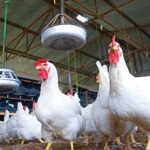
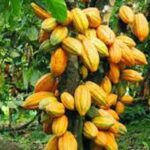
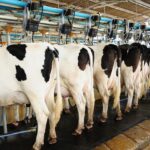
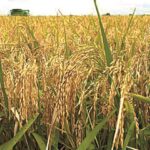
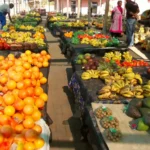
Recent Comments